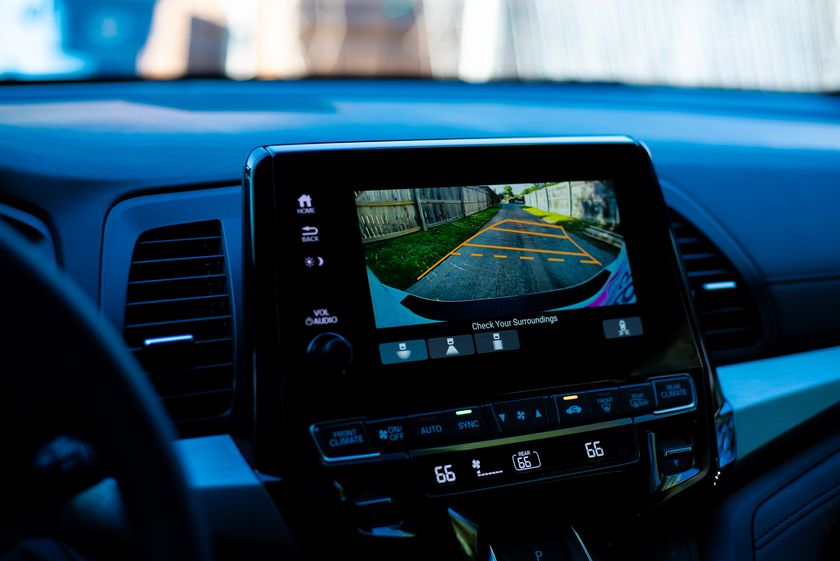- Categories :
- More
Are Backup Cameras Mandatory in the U.S. to Prevent Backover Accidents?

Backup cameras, also referred to as rearview cameras or reversing cameras, are video cameras specifically designed to be attached to the rear of a vehicle. The backup camera activates when the car is put into reverse and displays the area behind the vehicle on a monitor or head unit display. This helps the driver reduce the rear blind spot and see if there are any potential hazards before backing up. Additionally, the backup camera helps drivers prevent injury-causing and potentially fatal backover accidents while reversing.
 Are Backup Cameras Required in the U.S.?
Are Backup Cameras Required in the U.S.?
In 2018, the U.S. National Highway Traffic Safety Administration (NHTSA) mandated that all new vehicles that weigh less than 10,000 pounds and are sold in the U.S. after May 1, 2018, must have backup cameras. The mandate aimed to enhance road safety by reducing blind spots for drivers and preventing accidents caused by reversing vehicles. Additionally, the mandate aimed to help prevent collisions with vulnerable road users. A significant portion of reversing accidents involve children, elderly individuals, and other vulnerable road users, so backup cameras are crucial for their safety.
Are Backup Cameras Required in Older Vehicles?
Although backup cameras are required in vehicles that are made after May 1, 2018, they are not required in vehicles made before that date. While not required, installing a backup camera in an older vehicle can be beneficial. Having a backup camera can significantly improve your visibility when reversing, which allows you to see obstacles behind your vehicle and avoid accidents with pedestrians, other cars, or objects while reversing. To install a backup camera into a vehicle made before the mandate, it is best to take your car to a professional installation company to ensure proper functioning because older model vehicles are not pre-wired for backup cameras.
Do Backup Cameras Prevent Backover Accidents?
A study done in 2017 by the Insurance Institute for Highway Safety (IIHS) found that backup cameras reduced backing crash accidents overall by about 17%. Although backup cameras have been proven to help reduce reversing accidents, you should never solely rely on a backup camera. There are still potential problems when reversing with a backup camera installed. Even with a backup camera installed on your vehicle, drivers need to be attentive and check both ways before slowly backing out of a parking space or other area to ensure their and others’ safety.
What are the Potential Problems with Backup Cameras?
Drivers may still cause a backover accident even with a backup camera installed in their vehicle. There are four main potential issues with backup cameras. One potential problem is that backup cameras can give a driver a false sense of security in reversing. Drivers using backup cameras may think that they can see everything behind their vehicle; however, rearview cameras typically only have an 80-degree visual field. Another potential problem with backup cameras is that they may not function properly. If a driver solely relies on a backup camera and its system is not working right, it may cause a serious backover accident that injures or kills someone. Drivers who are used to hearing a beep from the system if there is an obstacle behind the car may not realize that something is behind their car when the system is not working. Additionally, another issue with backup cameras is that a distracted driver may not use a camera in the first place. If a driver is not paying attention to the road and what is behind them when they are reversing, then the backup camera is of little use. Lastly, one of the potential problems with backup cameras is that they can become blurred, and the camera could crack, which disrupts the driver’s ability to see. Cameras can become blurred due to fingerprints or dust, and the camera’s lens could crack due to rocks or other hard objects hitting the car. A blurry or cracked camera could prevent a driver from being able to see what is in their rear blind spot.
What Should I do if I was Hit in a Backover Accident?
Even though backup cameras are required in all new vehicles sold in the U.S., backover accidents are still very common. If you or someone you love has been injured as a result of a backover accident, you may be entitled to receive compensation for your injuries. If your injuries were caused by the negligence of another driver, you need a Houston car accident attorney to help you claim the compensation you deserve. At Simmons and Fletcher, P.C., our experienced lawyers will help you protect your rights and look after your best interests through every step of your legal claim. For a free consultation, call (713) 715-4754.










